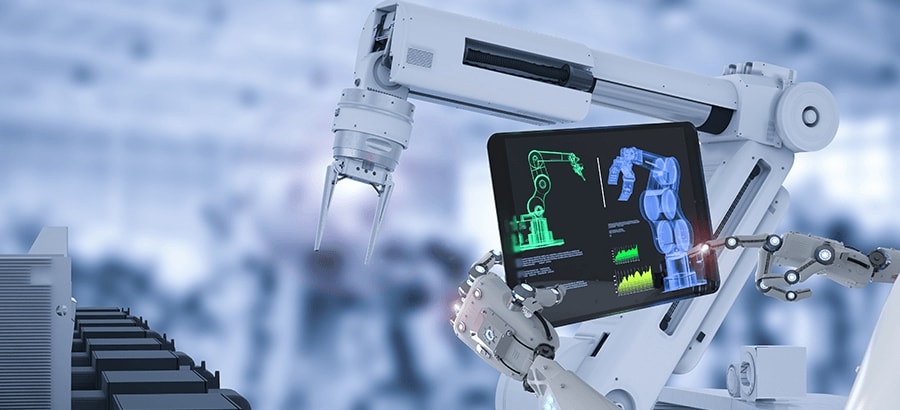Technology Influence the Manufacturing Industry

Technology has a significant influence on the manufacturing industry, driving innovation, efficiency, and competitiveness across various aspects of the manufacturing process. Here are several ways in which technology influences the manufacturing industry:
-
Automation and Robotics:
- Automation technologies, including industrial robots, robotic arms, and automated assembly systems, streamline manufacturing processes, increase productivity, and improve precision and consistency in production.
- Robotics automation enhances efficiency in tasks such as material handling, welding, painting, and assembly, reducing labor costs, cycle times, and human error in manufacturing operations.
-
Advanced Manufacturing Techniques:
- Advanced manufacturing techniques, such as additive manufacturing (3D printing), computer numerical control (CNC) machining, and laser cutting, enable rapid prototyping, customization, and on-demand production of complex parts and components.
- Additive manufacturing technologies offer design flexibility, material savings, and reduced lead times, allowing manufacturers to produce lightweight, high-performance parts with intricate geometries and optimized structures.
-
Internet of Things (IoT) and Industrial Connectivity:
- IoT technologies connect manufacturing equipment, machines, and sensors to the internet, enabling real-time monitoring, data collection, and remote control of manufacturing processes.
- Industrial IoT platforms facilitate predictive maintenance, condition monitoring, and performance optimization, enhancing equipment reliability, uptime, and operational efficiency in smart factories and connected manufacturing environments.
-
Digital Twins and Virtual Simulation:
- Digital twin technology creates virtual replicas of physical assets, production systems, and manufacturing processes, enabling simulation, modeling, and optimization of production workflows.
- Digital twins provide insights into equipment performance, process efficiency, and product quality, allowing manufacturers to identify bottlenecks, optimize resource utilization, and improve manufacturing outcomes in real time.
-
Artificial Intelligence and Machine Learning:
- Artificial intelligence (AI) and machine learning algorithms analyze manufacturing data, patterns, and trends to optimize production schedules, predict equipment failures, and optimize supply chain logistics.
- AI-driven predictive analytics, quality control, and demand forecasting improve decision-making, reduce waste, and enhance operational efficiency in manufacturing operations.
-
Supply Chain Management and Logistics:
- Technology-enabled supply chain management systems, such as enterprise resource planning (ERP) software, inventory management platforms, and logistics optimization tools, optimize procurement, production, and distribution processes.
- Supply chain visibility, traceability, and transparency technologies improve coordination, collaboration, and efficiency across the manufacturing supply chain, reducing lead times, inventory costs, and supply chain disruptions.
-
Sustainable Manufacturing and Industry 4.0:
- Industry 4.0 technologies, including smart sensors, cloud computing, and data analytics, enable sustainable manufacturing practices, energy efficiency improvements, and environmental stewardship.
- Sustainable manufacturing initiatives leverage technology to reduce resource consumption, minimize waste generation, and mitigate environmental impacts, aligning with sustainability goals and corporate social responsibility (CSR) commitments.
Overall, technology drives innovation, efficiency, and competitiveness in the manufacturing industry, transforming production processes, supply chain management, and business models to meet evolving customer demands, market dynamics, and industry challenges. Continued investment in technological advancements and digital transformation is essential for driving manufacturing innovation, accelerating Industry 4.0 adoption, and shaping the future of manufacturing in the digital age.
Thank you,
